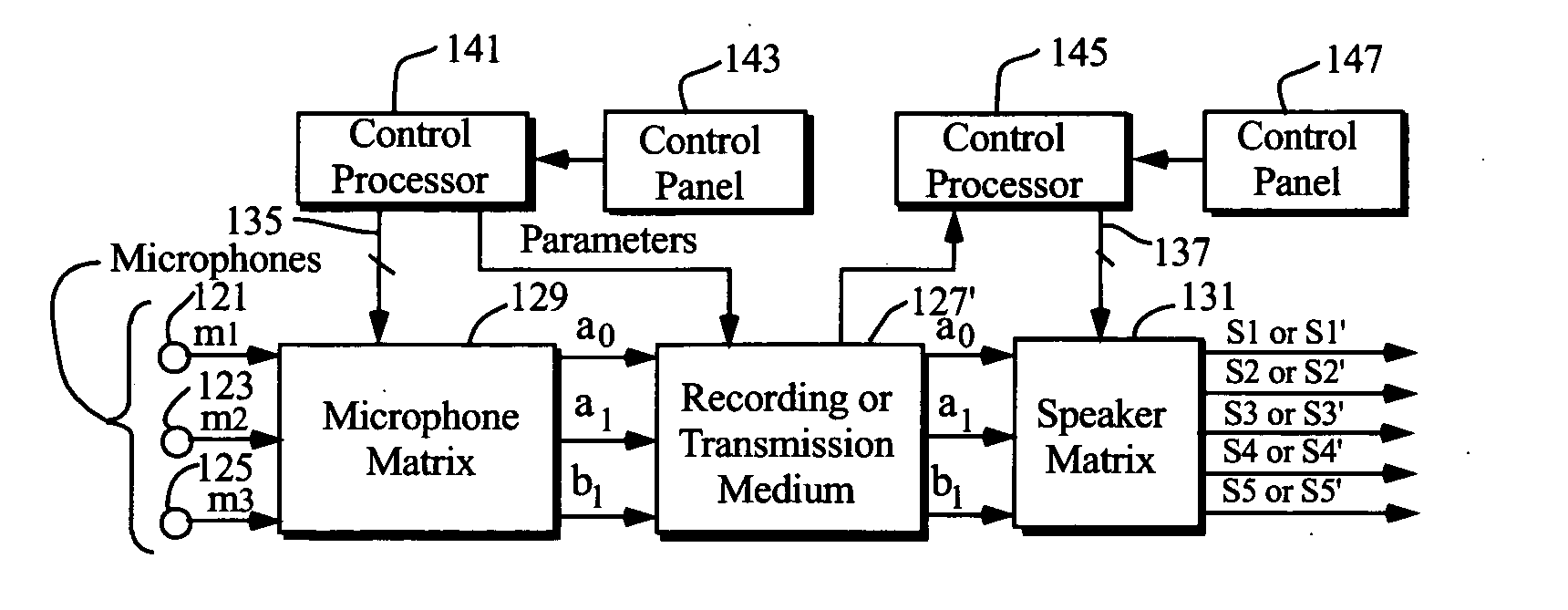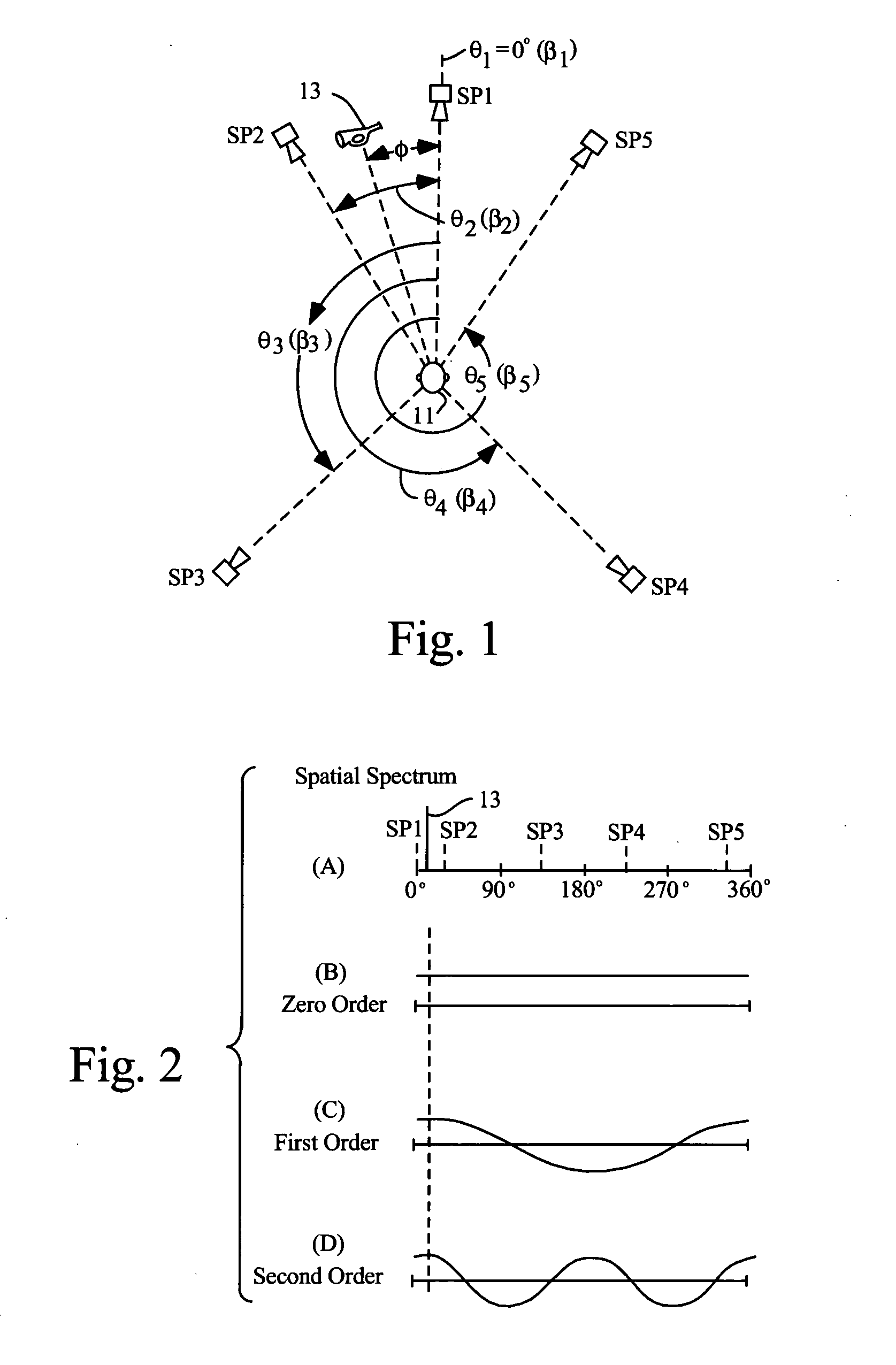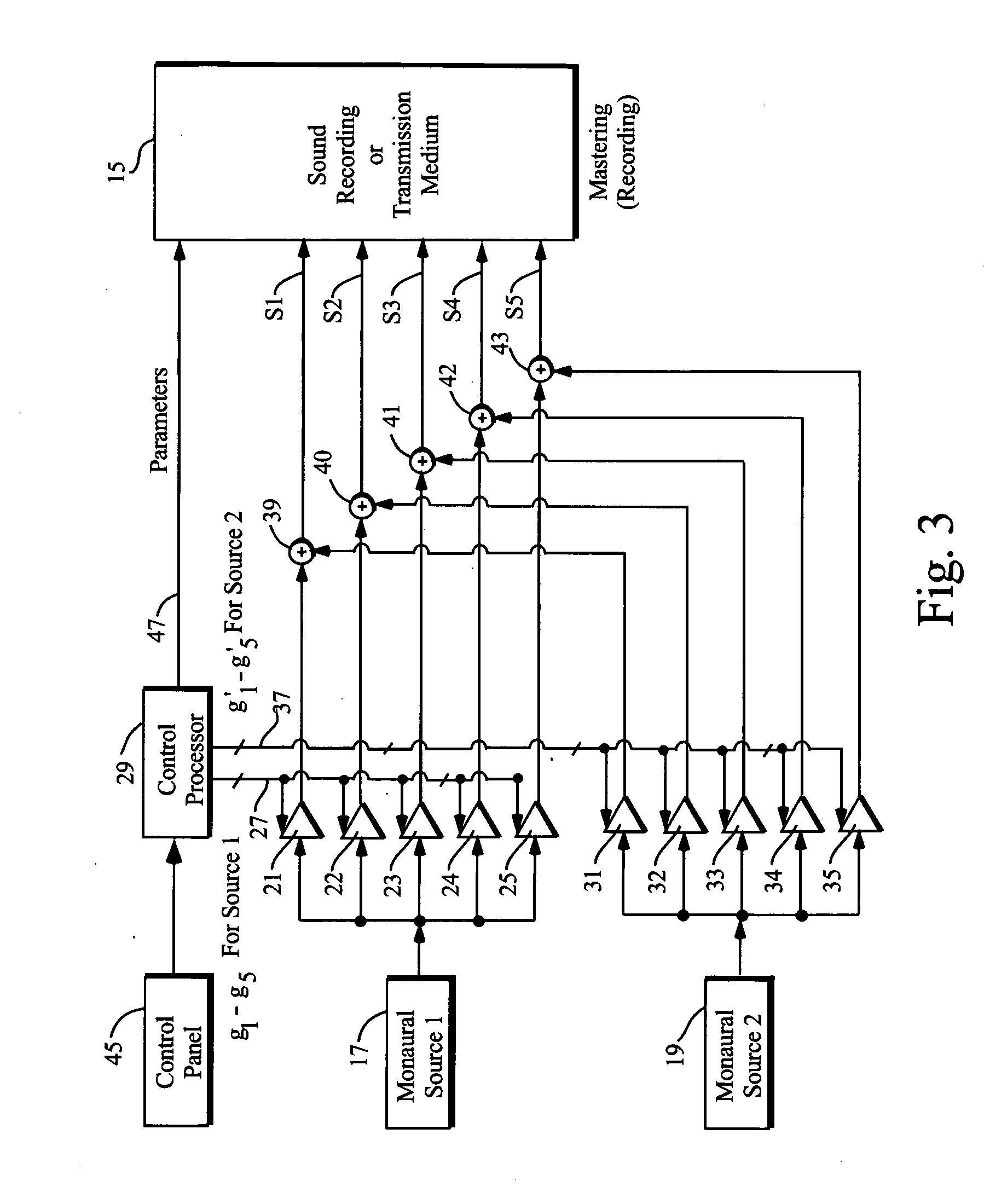Multi-channel surround sound mastering and reproduction techniques that preserve spatial harmonics in three dimensions
a technology of spatial harmonics and mastering, applied in the field of surround sound techniques, can solve the problems of inability to accurately reconstruct the audio wavefront in the home, theater, etc., and achieve the effect of adding to the realism of sound reproduction
- Summary
- Abstract
- Description
- Claims
- Application Information
AI Technical Summary
Benefits of technology
Problems solved by technology
Method used
Image
Examples
Embodiment Construction
[0025] The discussion starts with the method of spatial harmonics in a two dimensional plane. Some of the results of this methodology are: (1) a way of recording surround sound that can be used to feed any number of speakers; (2) a way of panning monaural sounds so as to produce exactly a given set of spatial harmonics; and (3) a way of storing or transmitting surround sound in three channels such that two of the channels are a standard stereo mix, and by use of the third channel, the surround feed may be recreated that preserves the original spatial harmonics.
[0026] Following the two dimensional discussion, this same theory is extended to three dimensions. In two dimensions, the spatial harmonics are based on the Fourier sine and cosine series of a single variable, the angle φ. Unfortunately, the mathematics for the 3D version is not as clean and compact as for 2D. There is not any particularly good way to reduce the complexity and for this reason the 2D version is presented first...
PUM
 Login to View More
Login to View More Abstract
Description
Claims
Application Information
 Login to View More
Login to View More - R&D
- Intellectual Property
- Life Sciences
- Materials
- Tech Scout
- Unparalleled Data Quality
- Higher Quality Content
- 60% Fewer Hallucinations
Browse by: Latest US Patents, China's latest patents, Technical Efficacy Thesaurus, Application Domain, Technology Topic, Popular Technical Reports.
© 2025 PatSnap. All rights reserved.Legal|Privacy policy|Modern Slavery Act Transparency Statement|Sitemap|About US| Contact US: help@patsnap.com



